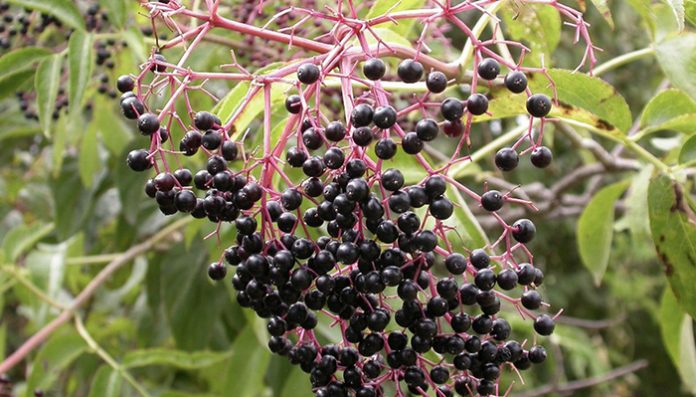
Herbal remedy believers have been using elderberry for centuries, saying it boosts the immune system to fight off colds and flu.
Elderberry flowers and berries are used in natural supplements, often in gummy or syrup form and infused into teas. Supporters claim that the antioxidants can boost immunity and there are natural anti-microbial or anti-bacterial qualities to the plant.
As the spread of novel coronavirus to the U.S. becomes ‘inevitable’ and patient cases begin to climb, those worried about the illness are doing everything they can to prepare. So can elderberry help fight off COVID-19?
“We don’t really know. There’s still not enough significant data, even after centuries of use, to show that elderberry syrup fights flu symptoms or boosts the immune system at all,” said Dr. Keith Armitage, medical director for the UH Roe Green Center for Travel Medicine and Global Health.
“If sipping on elderberry tea or a dose of syrup makes you feel better, there’s no reason to not take it,” Armitage said, but advises to acknowledge the plant’s limits.
“It’s definitely not an alternative to the flu shot,” he said.
Should I take elderberry syrup?
A recent note sent out about coronavirus from South-Euclid based Senders Pediatrics cites some studies on elderberry syrup that show there can be positive effects from taking Sambucol, a name brand elderberry syrup.
“Because it has antiviral properties and no significant side effects except for cost, we see no reason not to use 10 ml once a day in people over 4 years and 5 ml once a day in children 1 to 4 years.”
A 2004 study published in the Journal of International Medical Research found in a study of 60 patients that flu symptoms were relieved 4 days earlier and less medication was needed for patients taking syrup over those who didn’t. A 2016 study of about 300 travellers, published in Nutrients, found travellers using elderberry experienced 2-day shorter duration of a cold and also noticed a reduction in cold symptoms.
But the flu is different from coronavirus — and there’s so much we don’t know about treating the coronavirus. Tamiflu doesn’t work, and there’s no vaccine to prevent the illness yet. Symptoms are flu-like, mainly affecting the upper respiratory system and causing coughing, sneezing and shortness of breath.
What do studies say?
Dr. Irina Todorov, an integrative medicine physician, shared in a Cleveland Clinic blog post that most studies on elderberry syrup are on a small scale and larger studies are needed before anything is proven. The post asserts that elderberry syrup isn’t a flu shot substitution but can be used as a dietary supplement.
People with weakened immune systems are more prone to viral infection or more severe symptoms from viruses. Taking steps towards a healthier diet, practicing good hygiene and getting enough sleep can boost the body’s defenses.
Jason Briscoe, Discount Drug Mart’s director of pharmacy operations, said that elderberry syrup isn’t what he would “automatically recommend” for prevention or treatment, but wouldn’t dissuade patients from taking it.
He added that maintaining a balanced diet and getting the right nutrients is important but that patients should make sure that the syrup doesn’t have any ingredients in it that negatively affect existing medications or conditions.
The same advice stands for Vitamin C, which can be helpful as a supplement if someone isn’t getting enough of the vitamin through diet.
How should I use elderberry syrup?
Do not eat raw elderberries, which have toxic elements. Follow dosage on the bottle and be aware of additives which can stack up and cause problems.
Senders Pediatrics noted in an email that gummies and dissolvable tablets from Sambucol contain zinc. Doctors recommend only the syrup. When a patient takes in too much zinc, it can cause negative side effects.
Additional tips from the Cleveland Clinic include checking the bottle to understand what parts of the plant and active ingredients are in the syrup.







